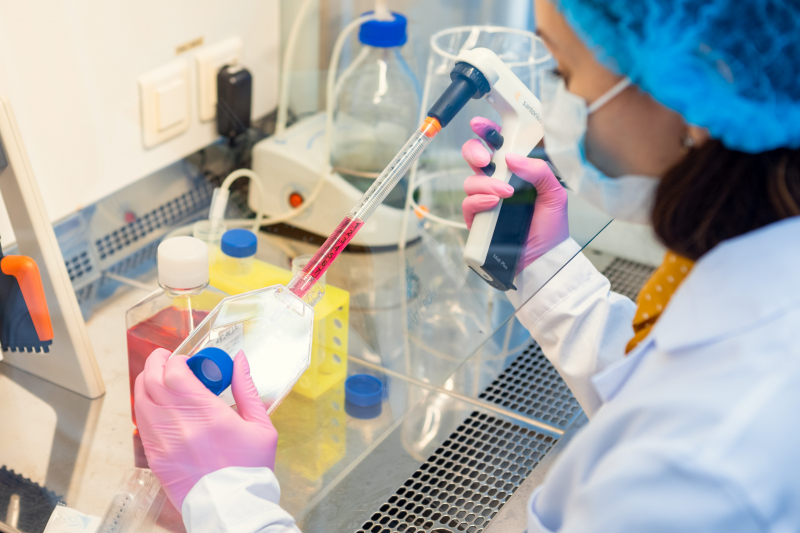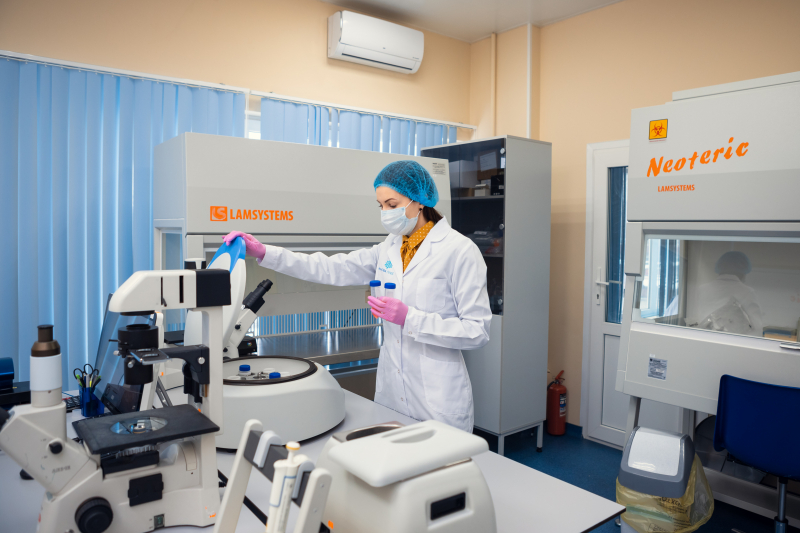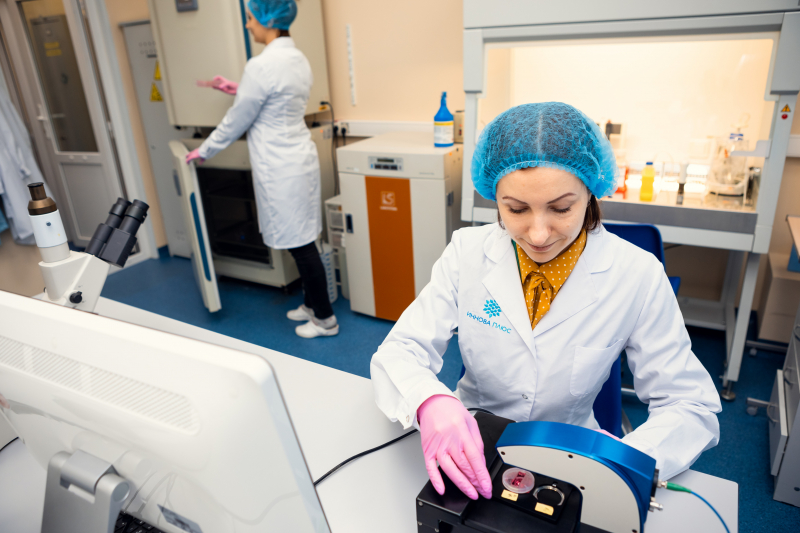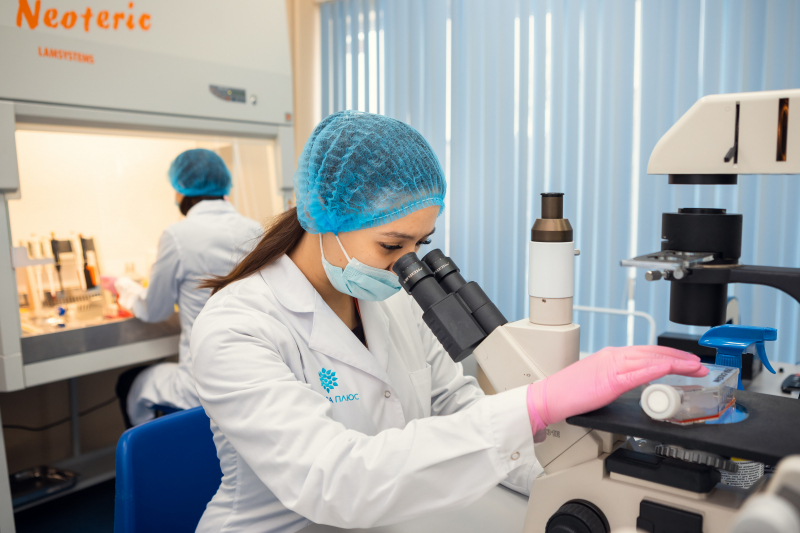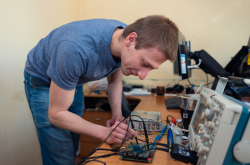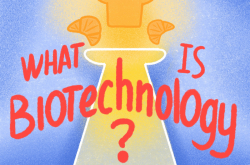Biotechnology industry
Many industries, including biotechnologies, have experienced digital transformation over the past decade. Now, it’s hardly possible to imagine, say, pharmaceuticals without data analytics, computer simulation, and other IT methods. Technologies are becoming more advanced and specialists are now required to master new skills. Today’s specialists must not only know how to work with biological cultures, microorganisms, and chemicals in laboratories but also understand the fundamentals of bioinformatics.
“Experts can no longer do everything on their own, they have to develop special algorithms to analyze data, both genetic and production-related. Processes are being automated, equipment and technologies are becoming more elaborated, the number of tasks is increasing, and production is getting more complex, as well. Now, we can’t do without data analytics and bioinformatics. Even specialists in wet biology have to turn to databases, algorithms, and simulations in their research,” says Ruslan Al-Shekhadat, the CEO of Innova Plus.
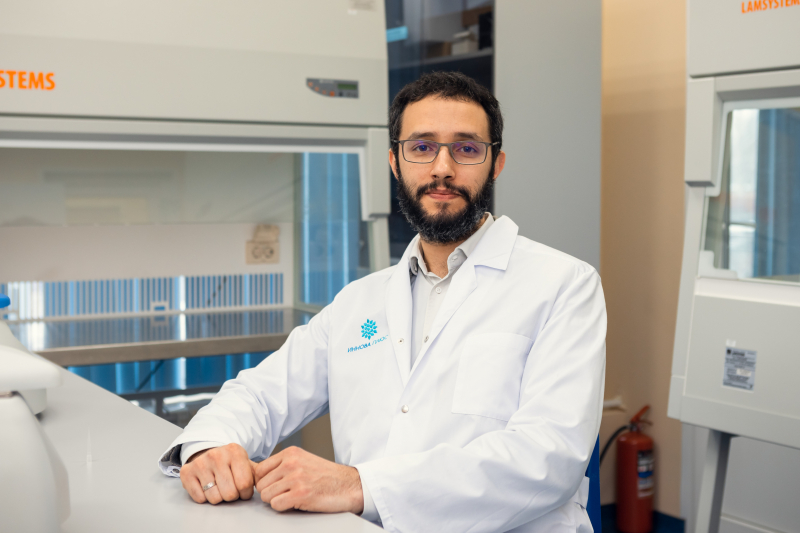
Ruslan Al-Shekhadat. Photo by Dmitry Grigoryev / ITMO.NEWS
As noted by Ruslan Al-Shekhadat, Russia has been expanding and strengthening its pharmaceutical and biotechnology industries over the recent years. The trend stems from the country’s policy of import substitution (for medications, in particular) and active government support. This means that today’s biotechnology industry requires more and more workers, in particular, professionals who can operate complex equipment and understand production processes. One of Russia’s largest pharmaceutical companies R-Pharm, for instance, employs over 1,000 people every year, with device and installation operators being the most desired specialists.
The Geropharm HR specialists Anna Krylova and Violetta Zinovieva report similar tendencies in the pharmaceutical market, too. Today’s employers are on the lookout for future specialists with practical skills:
“As we are recruiting more and more young people annually, we look for those aspiring specialists who can demonstrate a greater amount of practical skills. There’s a great demand not only for biotechnologists, microbiologists, and chemists but also experts in engineering and GMP (Good Manufacturing Practice – Ed.),” explain Anna Krylova and Violetta Zinovieva.
The learning process
In order to train a new generation of biotechnology specialists, ITMO is launching a new Master’s program that will bring together biotechnologies, data, and digitalization. According to Mikhail Kurushkin, the dean of the Faculty of Biotechnologies, the goal of the program is to help students with a background in biotechnology master machine learning, predictive analytics, production processes, and modern trends in biotechnology. Thus, the program will ensure that its graduates are highly in-demand and meet the needs of the modern market.
Students who will successfully complete the Master’s program will be able to pursue their careers as technologists, data analysts, equipment operators, quality assurance and control experts, as well as digitalization and automation specialists.
“We realized that our school offers many research-oriented Master’s programs: we teach our students to understand various processes at the cell and molecular levels, including for applications in different biotechnology tasks. But what our educational programs lack is coverage of the production processes and the ways biotechnologies are applied in the industry,” says Mikhail Kurushkin. “At the same time, it’s crucial for students to know that modern biotechnology production relies on various IT approaches, including digitalization, automation, robotization, and predictive analytics. This means that companies need specialists who understand such production principles and are capable of navigating technologies and integrating them into the process.”
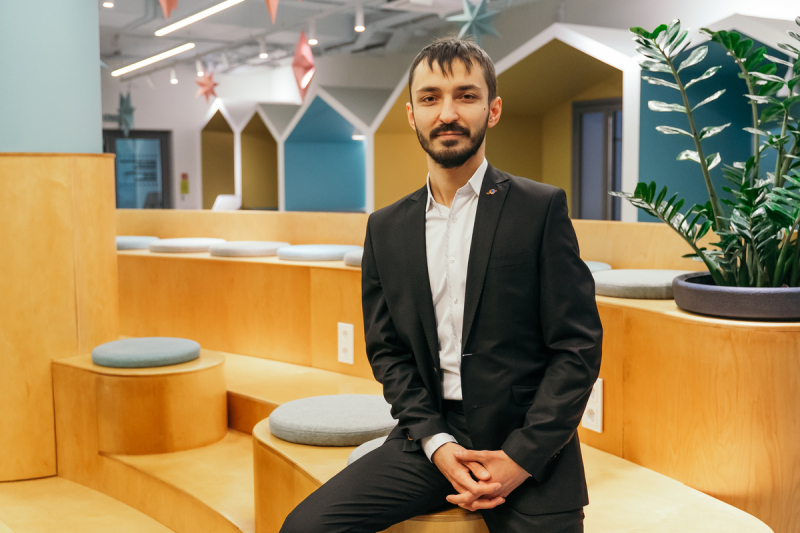
Mikhail Kurushkin. Photo by Nikita Seliverstov / Megabyte Media
The curriculum
According to Mikhail Kurushkin, the new program will not only focus on training specialists for the pharmaceutical industry, but also familiarize its students with key digital techniques applied in various fields. Contemporary logistics in biotechnologies is hardly imaginable without predictive analytics, agriculture goes hand-in-hand with smart technologies, and production keeps becoming more robotized and automated. In this program, students will get the skills necessary for working on these relevant tasks.
Representatives of various biotechnology companies will teach most of the program’s courses. The curriculum was developed in collaboration with industrial partners and the research element of the program is headed by Ruslan Al-Shekhadat, the CEO and research director of Innova Plus. Other research consultants are Roman Ivanov, the Vice Rector for R&D at Sirius University and head of the Biotechnology specialization, and Alexander Chernavin, a regional head of R-Pharm.
Lecturers from ITMO’s own Faculty of Control Systems and Robotics and Faculty of Infocommunication Technologies will teach courses in machine learning, robotization, digital twins, and industrial process automation. Among the program’s lecturers are Alexey Margun, who also collaborates with the State Research Center of Virology and Biotechnology Vector (the developers of the EpiVacCorona vaccine), and Dmitry Dobriborsch, the head of the new program.
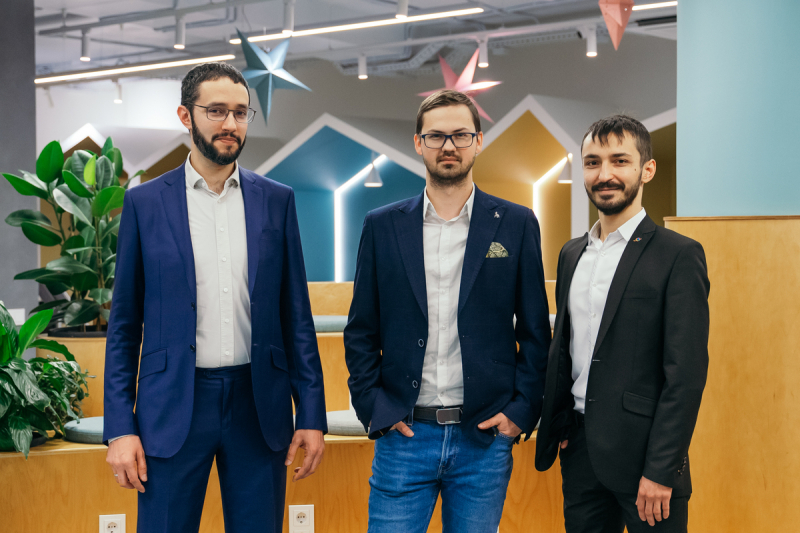
(Left to right) Ruslan Al-Shekhadat, Dmitry Dobriborsch, and Mikhail Kurushkin. Photo by Nikita Seliverstov / Megabyte Media
“We want to bring in at least ten people who will represent leading companies. This will not only paint a realistic picture of the industry but also give our students the opportunity to meet their potential mentors and future employers. At the early stages of their studies at the program, our students will be able to outline their graduation projects, which will correspond to the actual challenges faced by the industry,” concludes Mikhail Kurushkin.
